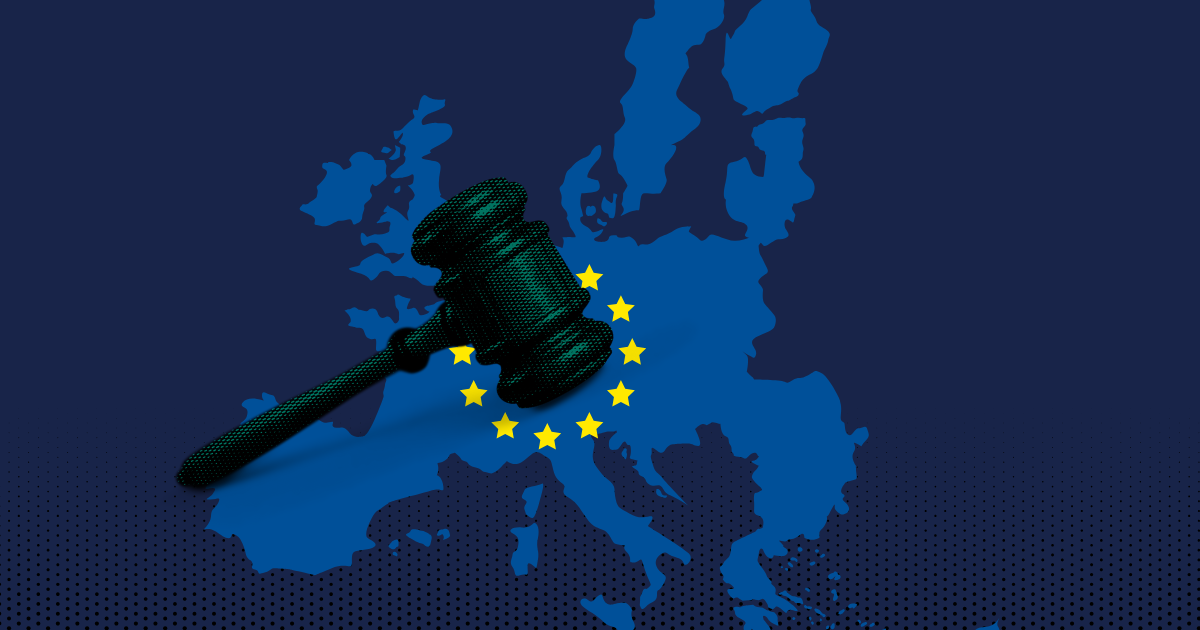
Claire Terrier
International Commercial Law Student, Université Paris-Nanterre
In the European Union's (EU) push for competitiveness, it risks trading long-term sustainability for short-term economic gains. As seen on February 26, 2025, the European Commission proposed the Omnibus Act, a legislative package simplifying recent progressive EU environmental regulations, namely, its due diligence and reporting obligations, to enhance competitiveness and boost investment. It follows the Draghi report from September 9, 2024, which highlighted an urgent need for economic development to excite the lagging European economy since the 2008 Global Financial Crisis and in the face of President Donald Trump's announcement of increased tariffs on European products. In turn, the Omnibus Act echoes the report's call for a regulatory framework aimed at strengthening European competitiveness by reducing business costs to ensure industries, like aluminum and steel, even wines and spirits, survive a potential 200 percent US tariff increase.
The Omnibus Act's objectives seem not only positive for the economy, but also the environment, as Ursula von der Leyen, President of the European Commission said, “European businesses will benefit from lighter rules on sustainable finance reporting, sustainability due diligence, and taxonomy. This will make life easier for our companies while ensuring we remain firmly committed to our decarbonization goals.” According to the European Commission, reducing administrative burdens would result in estimated savings of €6.3 billion per year and mobilize an additional €50 billion in public and private investments to support strategic priorities.
Legislation affected by the Omnibus Act
The primary laws affected by these changes are the CSRD (Corporate Sustainability Reporting Directive of December 14, 2022) and the CSDDD (Corporate Sustainability Due Diligence Directive of June 13, 2024), whose modifications complement how companies will no longer be required to declare their alignment with the European green taxonomy.
The CSRD Directive aimed at increasing the transparency and responsibility of companies regarding their ESG impact. Companies must publish certain information related to their environmental and social impacts. The Omnibus Act provides for restricting its scope to companies with more than 1,000 employees and generating a turnover of at least 50 million euros, which reduces its scope by 80 percent, thus excluding SMEs, which may, however, comply on a voluntary basis. In addition, CSRD reporting will be simplified by removing certain publication obligations deemed non-essential.
The CSDDD aimed at promoting sustainable and responsible business conduct in their operations and chain of activities in the law itself. It requires companies to identify and consider the risks related to human rights and the environment in their activities. The Omnibus Act provides for easing these obligations by limiting periodic assessments of direct trading partners to once every five years instead of once a year as is currently the case. It also reduces the information requirements requested from SMEs and removes European civil liability, replaced by liability regimes specific to the Member States.
While regulation can be seen as a drag on investment, it is nevertheless necessary for environmental protection and public health."

Claire Terrier
International Commercial Law Student, Université Paris-Nanterre
The need to strike a balance between environmental protection and economic growth
More than 160 NGOs oppose this proposal, including Notre Affaire à Tous, Sherpa, Terre Solidaire and OXFAM, which denounce, “under the guise of 'simplifying' the lives of companies, the Commission's Omnibus Act proposes to dismantle a number of obligations regarding sustainability and the protection of human rights.”
These NGOs are alerting the European authorities to the risk of slowing down the ecological transition, while the effects of climate change are becoming increasingly visible in Europe. They denounce a “historic regression concerning environmental and social standards in Europe;” yet, the 2025 edition of Notre Affaire à Tous report paints a bleaker picture: "self-regulation is a failure and without binding standards whose application is controlled, companies will not be at the rendezvous of the transition.” Some argue, like Audrey Changoe, campaign manager for trade and corporate responsibility at Climate Action Network Europe, that, “by undoing hard-won progress under the European Green Deal, the Commission is giving in to pressure from the big business lobby.” Europe, which wanted to position itself as a global leader in environmental standards, ultimately seems to be backtracking to satisfy advocates of deregulated capitalism.
In addition to the threat to the environment and health, frequent and complex changes in regulations create legal instability for companies, which struggle to plan their CSR strategy serenely. This uncertainty risks limiting the climate ambition of companies, which may consider regulations as a constraint rather than an opportunity to become more sustainable. Furthermore, “companies that have already invested to comply with current rules may feel disadvantaged by a relaxation of requirements, while those that had not yet complied would benefit,” explained Sébastien Thierry, legal director of Tetra Pak, in his recent lecture on corporate compliance.
Even before the Omnibus Act has been fully advanced, the European Parliament adopted, on April 3, 2025, the European Commission's proposed "stop-the-clock" mechanism, thus, delaying the application dates of certain corporate sustainability reporting and due diligence requirements, as well as the transposition deadline for Member States. The complete act must still be approved by the European Parliament before entering into force. If the text is adopted, Member States will be obliged to transpose these new rules, but may nevertheless, in accordance with European law, apply stricter standards to preserve existing provisions. The future of the EU will depend on its ability to prioritize environmental and public health protections over short-term business interests.
